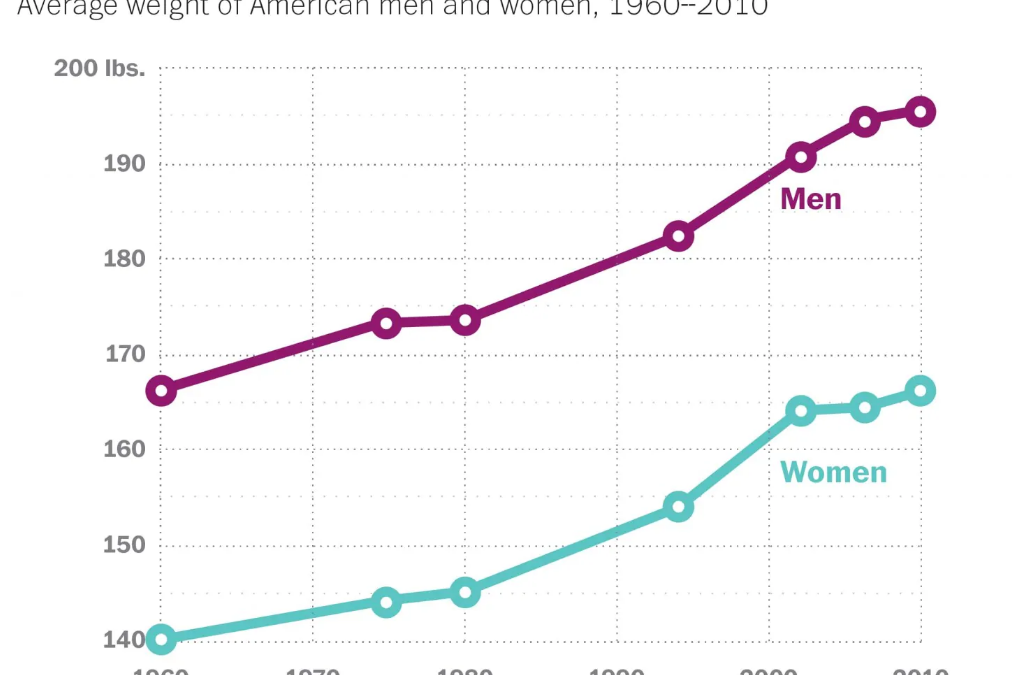Are You An Average American?
Are You An Average American?

 About 10 years ago, I attended a four-day marketing conference in Chicago. One of the speakers was a young woman who was in her early 30s and was a well-known expert in email marketing. In one of her presentations, she talked about how she hires other people to do what she considers non-essential tasks — grocery shopping, meal preparation, and house cleaning — so she can spend her time on higher value activities.
About 10 years ago, I attended a four-day marketing conference in Chicago. One of the speakers was a young woman who was in her early 30s and was a well-known expert in email marketing. In one of her presentations, she talked about how she hires other people to do what she considers non-essential tasks — grocery shopping, meal preparation, and house cleaning — so she can spend her time on higher value activities.
The woman appeared to be physically fit and attributed her appearance, in part, to the fact that she pays a trainer to personally assist her in her workouts at least three days each week. The personal trainer has a key to her house and has specific permission to enter her house and, if necessary, drag her out of bed so she can follow through on her workouts.
The woman started by telling everyone about how she was dead broke at the age of 24 and was living in a small one-room efficiency apartment in New York. She said that she had to constantly resist the temptation to call her parents and ask them if she could move back home. While she didn’t have the money to hire a personal trainer, she was still able to get her workouts done, along with all the other things she needed to accomplish.
She said that before she had the money to pay someone else to drag her out of bed in the morning to exercise, there were two things that she routinely did to make sure she exercised: (1) She determined the dates and times she would exercise and what exercises she would do on those dates, and (2) She lined up a workout partner — a friend or co-worker — for each of her planned workouts. She knew that she would not have the discipline to exercise on her own, so she found someone who would hold her accountable.
The average American adult rarely exercises, is at least 20 to 30 pounds overweight, is in debt, cannot set money aside on a consistent basis so they can pay extra on their monthly payments, and makes excuses to justify why things will never change.
Are you an average American?
Are you an average Catholic?
God did not create any of us to be “average.” He created us to be saints.
If you are ever going to be able to lose weight, exercise regularly, and get out of debt, you have to be willing to make and keep commitments. One of the most important steps to progress and success is the willingness to make commitments. If you just tell yourself that you’re going to lose 20 pounds before the end of the year by exercising and cutting back on what you eat, you’ll probably end up gaining weight instead of losing weight. Why? Because you haven’t committed to anything specific.
Conversely, if you commit to and write down exactly what you will eat each day for your meals, the dates and times you will exercise, and the exact exercises you will perform, you will lose weight and firm up your body.
The same is true for your prayer life. Even though you know you should spend more of your time in prayer each day, you will not be able to make any progress in your prayer life if you fail to make the commitment to a plan that includes the times and days you will follow through on your prayers.
I can’t tell you how many people have told me they have been thinking about praying a daily Rosary or signing up for a weekly holy hour in the adoration chapel. But that’s all they ever do is think about it — just like they routinely think about losing weight, exercising, and getting out of debt.
It’s the commitment to a specific plan of action with dates and times that makes the difference between success and failure.
Unfortunately for most of us, we do everything in our power to avoid committing to anything that might cause us any kind of inconvenience or discomfort.
Over 40 years ago, I made a commitment to the Mother of God that I would pray a Rosary every day. Over 30 years ago, I made a commitment to our Lord that I would do my best to attend noon Mass every weekday at Sacred Heart Church in downtown Peoria, where my office is located. And over 20 years ago, I made a commitment to our Lord that I would do my best to stop by and visit with Him every day in the adoration chapel.
I didn’t do any of those things on a daily basis until I made specific date and time commitments.
All success, whether physical, financial, or spiritual, starts with a commitment.
Next time you go to confession, you may want to take a different approach as to how you evaluate your past behavior by telling the priest about the commitments you should have made but never got around to making. The failure to commit to and follow through on something you know you should be doing is a “sin of omission.”
When was the last time you confessed to committing a sin of omission?
Most devout Catholics sin more by failing to do the things they should be doing, than by intentionally and knowingly committing a sin.
Now is a good time to evaluate what it is that you should be doing to improve your daily prayer life.
What is it that you’ve been putting off that you know you should be doing?
What commitment are you willing to make to God today that will include a new daily prayer ritual that will move you measurably closer to God?




2 Comments
Thanks for the reminder that we all need to re-evaluate our comments to our prayer life each year. As our prayer life grows we will be enlightened to see where we can adjust and give more of our time to Our Lord, as you did!
Perhaps we focus on the sins of commission because most of the ten commandments list them (8 Thou shalt nots). Even the other two, “Keep holy the Sabbath” and “Honor thy father and thy mother” are generally confessed only in their breach. The Beatitudes and the Fruits of the Spirit, however, when seen as similar codes of conduct, place emphasis on omissions. For example, compare the central commandment (considering the two covets together) “Thou shalt not kill” with the central Beatitude, “Blessed are the merciful” and the central Fruit of the Spirit, kindness. Breaking the fifth commandment requires an act of commission whereas breaking the fifth Beatitude and fifth Fruit of the Spirit generally involves failing to do what we should do. Imagine what the world would be like if people strove to live up to these codes of conduct as much as the ten commandments.